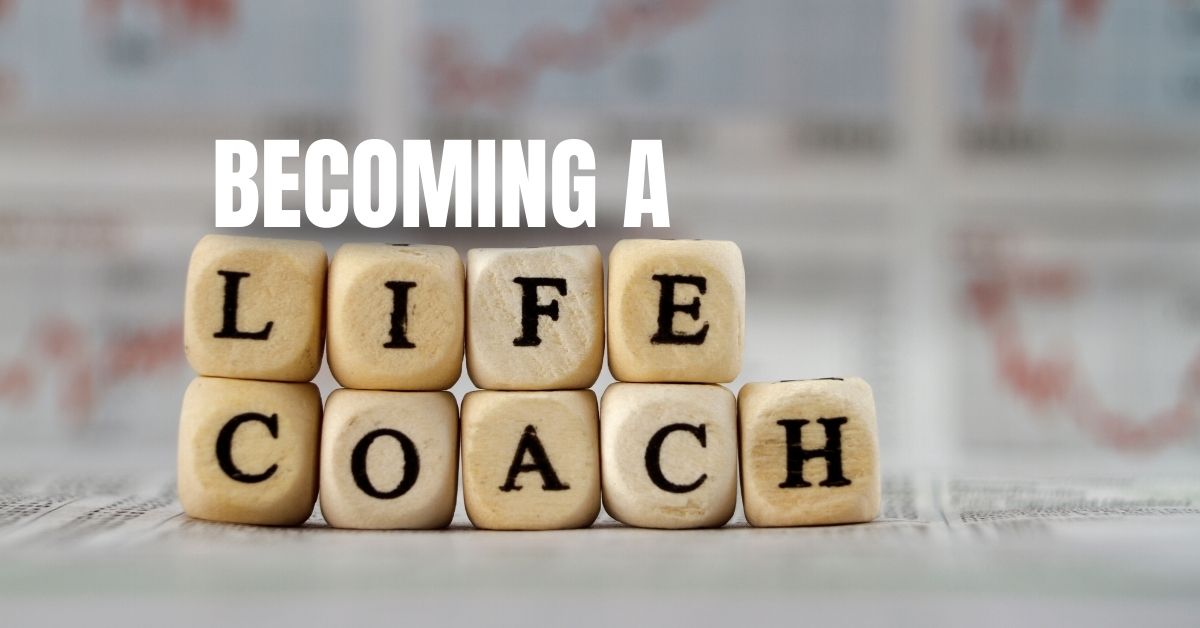Have you ever met someone who naturally sees the best in others? The kind of person who people turn to for guidance, encouragement, or a fresh perspective? Maybe you’ve felt that same pull inside yourself a calling to help others find clarity, set goals, and achieve them. But then the doubts creep in: Is this something I could really do? Can I turn my passion for helping people into a meaningful career?
Here’s the truth: becoming a life coach is more attainable than you might think. You don’t need decades of experience or endless certifications. What you do need is a genuine desire to support others, a willingness to learn, and the courage to start. In fact, becoming a life coach can be just as empowering for you as it is for the clients you’ll help.
This guide will break down exactly what it takes to turn your passion into a successful coaching career, so if you’re ready to take that first step, let’s dive in.
Why Choose Life Coaching? Transform Lives While Building a Rewarding Career
Life coaching offers a unique opportunity to make a positive impact on people’s lives. Unlike therapy, which often focuses on healing past wounds, life coaching is forward-looking it’s all about helping clients set actionable goals and build a better future. As a coach, you guide people through challenges, help them clarify their vision, and empower them to achieve transformative growth.
The demand for life coaching is on the rise, and it’s a field where you can truly make a difference. Imagine being the catalyst that helps someone reach their potential. The rewards go beyond financial success; it’s about building meaningful relationships and seeing your clients thrive.
Key Qualities of a Successful Life Coach: Do You Have What It Takes?
Before diving into the steps of becoming a life coach, let’s explore the key traits that set great coaches apart:
- Empathy and Understanding: The ability to truly listen and understand your clients’ experiences is essential. Being empathetic allows you to connect on a deeper level.
- Strong Communication Skills: Active listening, asking powerful questions, and expressing ideas clearly are crucial for creating impactful conversations.
- Integrity and Trustworthiness: Clients need to trust you fully. Being reliable, honest, and keeping client information confidential builds strong coaching relationships.
- Patience and Resilience: Coaching isn’t about instant results. Supporting clients through setbacks requires patience and a long-term perspective.
- Problem-Solving Mindset: Great coaches help clients overcome obstacles by focusing on solutions rather than dwelling on problems.
Quick Reflection: Ask yourself, “Do I have these qualities, or am I willing to develop them?” Recognizing your strengths and areas for growth can help you better prepare for this journey.
Steps to Start Your Career as a Life Coach
Ready to dive in? Here’s a step-by-step guide to becoming a successful life coach, from choosing your niche to building your business.
Step 1: Find Your Focus – Choose the Perfect Niche
Identifying your niche helps you stand out in a crowded market. Specializing in a specific area allows you to target clients who are looking for expertise in that field. Popular coaching niches include:
- Career Coaching: Assisting individuals with job transitions, career growth, and professional development.
- Health and Wellness Coaching: Guiding clients to achieve fitness goals, manage stress, and adopt healthier lifestyles.
- Relationship Coaching: Helping clients navigate personal and romantic relationships.
- Executive Coaching: Supporting leaders to enhance their skills, manage stress, and find work-life balance.
- Personal Development: Focusing on overcoming limiting beliefs, boosting self-confidence, and achieving personal growth.
Pro Tip: Reflect on your passions and strengths. What area excites you most? Choosing a niche aligned with your interests will keep you motivated.
Step 2: Get Certified and Gain Credibility
While life coaching is an unregulated industry, obtaining a certification from a reputable organization can boost your credibility. Certification programs provide structured training, covering essential skills like goal-setting, communication techniques, and ethics.
Top Certifications to Consider:
- International Coach Federation (ICF)
- Center for Credentialing & Education (CCE)
- European Mentoring and Coaching Council (EMCC)
These programs often include both theoretical lessons and hands-on practice, ensuring you’re well-prepared to coach clients effectively.
Step 3: Gain Practical Experience and Log Coaching Hours
Experience is the best teacher. Start by practicing with friends, family, or volunteer clients. Many certification programs require a certain number of logged coaching hours, which helps you gain confidence and refine your skills.
Actionable Tip: Keep a detailed log of your coaching sessions, as this documentation may be required for certification.
Step 4: Master Essential Coaching Skills
To be an effective coach, you need to master key coaching techniques, such as:
- Active Listening: Pay close attention to what clients are saying and what they’re not saying.
- Effective Questioning: Use open-ended questions to help clients reflect and gain deeper insights.
- Goal-Setting and Accountability: Support clients in setting realistic goals and holding themselves accountable.
- Adaptability: Every client is unique, so being flexible in your approach is key.
Step 5: Build Your Coaching Business
Once you’ve completed your training and gained experience, it’s time to launch your life coaching practice. Here’s how to get started:
- Create a Business Plan: Define your services, set your pricing, identify your target market, and outline a marketing strategy.
- Develop an Online Presence: A professional website and active social media profiles are essential for attracting clients. Share content that showcases your expertise, like coaching tips and client success stories.
- Leverage Networking: Connect with other coaches, attend industry events, and join professional associations to build your network.
Step 6: Keep Learning and Growing
Life coaching is a journey of continuous learning. Stay current with new coaching techniques, attend workshops, and take advanced courses to deepen your expertise. This commitment to growth will set you apart and ensure you deliver the best possible value to your clients.
Overcoming Common Challenges: Tips for New Coaches
Starting your coaching career can be challenging, but don’t let that deter you. Here are some common hurdles and how to overcome them:
- Finding Clients: Consider offering discounted or free sessions initially to build your client base.
- Setting Rates: Research your niche to set competitive, yet fair pricing. Don’t undervalue your services.
- Overcoming Self-Doubt: Many new coaches struggle with “imposter syndrome.” Remember, confidence builds with experience trust the value you’re providing.
Is Life Coaching Right for You?
Becoming a life coach is a commitment to helping others grow while growing yourself. If you’re passionate about guiding people to achieve their dreams, willing to invest in your education, and ready to put in the work, life coaching can be incredibly rewarding. The journey won’t always be easy, but with dedication, you’ll find fulfillment in empowering others to reach their potential.
Final Thoughts: Embrace the Journey and Make an Impact
Life coaching isn’t just a career it’s a calling to help people transform their lives. As you embark on this path, remember that your journey is just as important as your clients’. Stay curious, stay compassionate, and continue growing both professionally and personally.
If you’re ready to take the first step, explore reputable certification programs, define your niche, and start planning your coaching business. The world needs more passionate coaches who are ready to make a difference are you ready to be one of them?
Call to Action: Ready to begin your journey? Check out our resources for top certification programs, coaching tips, and practical advice to kickstart your career as a life coach!
Frequently Asked Questions About Becoming a Life Coach
Q1: What are the main benefits of becoming a life coach?
Becoming a life coach allows you to make a positive impact, enjoy flexible work hours, and create your own business. Many coaches find fulfillment in helping others achieve goals while also building financial independence and personal growth.
Q2: How do you become a certified life coach step by step?
Start by choosing a reputable training program accredited by organizations like the ICF, complete required coursework, practice coaching hours, and then pass certification exams. Afterward, build your practice by marketing services, networking, and gaining client testimonials.
Q3: Do you need certification to work as a life coach?
While certification isn’t legally required, it greatly improves credibility, trust, and client confidence. Many clients prefer certified coaches, and certification often provides valuable tools, mentorship, and industry recognition that help you stand out in a competitive market.
Q4: How much does it cost to become a certified life coach?
Training programs range from $1,500 to $10,000 depending on accreditation, duration, and support offered. Additional costs may include exam fees, continued education, and business setup expenses. Viewing it as an investment in your career can help weigh long-term value.
Q5: What’s the difference between a life coach and a therapist?
A life coach focuses on personal development, goal achievement, and forward-looking strategies. A therapist addresses mental health, emotional healing, and past trauma. While both support growth, coaching complements therapy rather than replacing professional psychological treatment.





